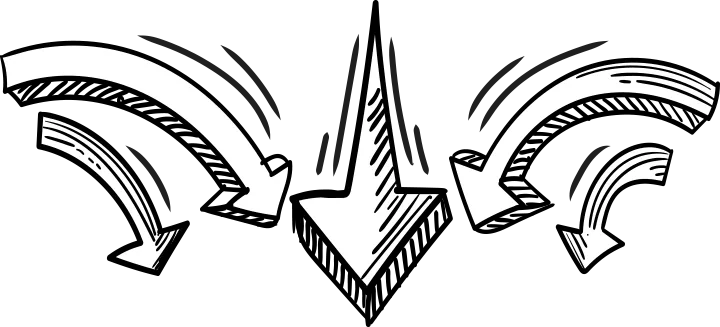What happens when an advertiser tries to cut CPA and use the affiliate channel to bring in “free” traffic and conversions?
Often times the draw of an affiliate channel is the Cost-Per-Acquisition (CPA) model of the channel – Advertisers only pay when a sale is made. But what happens when an advertiser tries to cut CPA and use the affiliate channel to bring in “free” traffic and conversions?
In this post, we’re going to look at what a “free” sale is and how they impact the affiliate channel.
Truth be told, “free” affiliate sales don’t actually exist. As Charles Portis noted in his epic book made feature-film, True Grit, “nothing is free except the Grace of God.”
What an advertiser means when they say “free” affiliate sales, is a sale driven by an affiliate that, for some reason or another, doesn’t earn a commission. The affiliate drove the click, the click converted, and the affiliate doesn’t get paid. There are a number of short and long-term effects that are result of this type of action, but first, let’s look at what would cause a sale to not earn commission.
What would cause commission to not be paid?
Occasionally advertisers will include restrictions that make an otherwise terrific program impossible to promote.
There are a number of ways in which advertisers can establish rules to avoid paying out on particular sales.
Some examples would be: cart-sniping prevention technology, invalid coupon code usage, non-commissionable SKU’s, short cookie duration, affiliate type (i.e. coupon vs. content).
These are all valid strategies to make sure you’re getting the most from your affiliates and correctly attributing sales through your channel. And to be clear, I’m all about being selective with sales and making your affiliates drive incremental sales.
Problems arise however, when due to the nature of the channel and these rules, it makes it impossible for affiliates to earn commission on perfectly legitimate sales.
A coupon affiliate that we work closely with summed it up this way:
“Occasionally advertisers will include restrictions that make an otherwise terrific program impossible to promote. Some examples we’ve seen are (1) un-commissionable products that are promoted on their landing pages and are popular with consumers, (2) unrealistically short cookie windows or action events that lag too far from the initial cookie, (3) de-duping across internal marketing campaigns even when affiliates contributed meaningfully to the sale and delivered the last click.” – Wickfire
In one program we managed, the advertiser used thousands of coupon codes across all their channels. Those codes kept getting leaked into the affiliate channel and the advertiser wouldn’t pay commissions on those sales. It was virtually impossible for affiliates to prevent particular coupon code usage due to the sheer number saturating the market, so they weren’t earning commissions on perfectly valid sales made with a coupon code they couldn’t control.
Once again, I’m all about making your affiliates work for the sale and prove their value and incrementality in the channel. But as we’ll see with the long-term effects, unfair commissioning practices tend to do more harm than good for any affiliate channel.
Effects of not paying affiliates commissions
Some effects of not paying commissions fairly to affiliates are: damaged relationships with affiliates, affiliates pulling links and ceasing to promote the brand, and having to negotiate higher commission payouts for sales that ARE commissionable.
In the case I listed above, the affiliate pulled the links because the program wasn’t profitable for them and, as a top producing affiliate, we saw a major dip in sales. We eventually had to agree on a higher commission for that affiliate since only a fraction of sales were actually paid out on. They began promoting us again, but the relationship remained rocky.
As one of our TM+ affiliates said:
“We pay out of pocket on paid search to put the information these users are seeking in front of them, which helps reduce shopping cart abandonment and close sales at a critical point in the shopping funnel. Our partnerships work best when advertisers recognize this and value it in the form of fair commission rules…. We have had to stop promoting advertisers because we lose money on paid search campaigns if we are driving a high percentage of sales that do not result in a commission.” – Wickfire
We pay out of pocket on paid search to put the information these users are seeking in front of them, which helps reduce shopping cart abandonment and close sales at a critical point in the shopping funnel.
Depending on the size of the program and the affiliate, an upset partner can result in thousands of revenue dollars lost. In our case, it was a lapse of approx. $30K MoM in revenue for 2 consecutive months until we came to an agreement.
Looking long-term, if you want to scale your affiliate program, you need to maintain strong relationships with your affiliates. As an agency, we work with many partners across a number of programs, so it’s very important for us to maintain these relationships since a bad relationship could affect a number of programs.
Affiliate programs come down to relationships. If you give credit where credit is due and properly maintain a working relationship with partners, the affiliate channel can excel as a low cost, high ROI channel in your marketing arsenal.
What do you think? Do you have experiences with “free” affiliate sales? How did that situation play out? Let us know what you think and if you have questions, feel free to send them our way!


